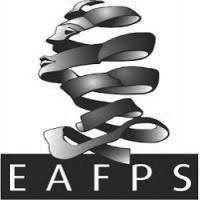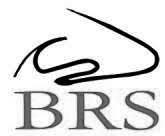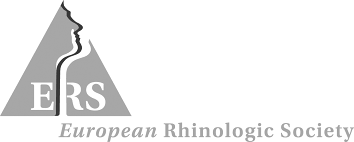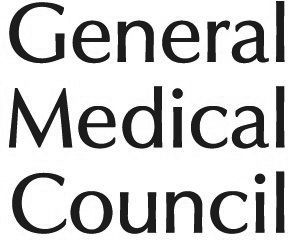Mr Samit Unadkat, Consultant ENT & Facial Plastic Surgeon
Mr Samit Unadkat
Consultant ENT & Facial Plastic Surgeon
Mr Samit Unadkat BSc (Hons) MBBS DOHNS FRCS (ORL-HNS)
Consultant ENT & Facial Plastic Surgeon
Mr Samit Unadkat
Consultant ENT & Facial Plastic Surgeon BSc (Hons) MBBS DOHNS FRCS (ORL-HNS)

Make an appointment
Address
-
Platinum Medical Centre
15 - 17 Lodge Road, London, NW8 7JA
-
The Wellington Hospital
Wellington Place, St John's Wood, London, NW8 9LE
About Mr Samit Unadkat
Mr Samit Unadkat is a Consultant ENT and Facial Plastic Surgeon at The Royal National ENT Hospital & University College London Hospital. He sees the full spectrum of ear, nose & throat disorders but has a super-specialist interest in rhinoplasty, sinus surgery and surgery for snoring & obstructive sleep apnoea (OSA). He practises privately at 9 Harley Street and Weymouth Street Hospital, London. Common conditions that he treats include:
• Rhinoplasty surgery – cosmetic & functional
• Nasal blockage
• Sinusitis
• Nasal allergy
• Hearing loss
• Recurrent sore throats & tonsillitis
• Epistaxis (nose bleeds)
• Olfaction (sense of smell)
Mr Unadkat was awarded the coveted Dr Harold Edwards Scholarship as the best-performing candidate to read medicine at Imperial College London. Having won numerous undergraduate and postgraduate prizes, he was ranked runner-up nationally in the selection process for the ENT training programme. His extensive training was conducted in numerous centres of excellence in London including The Royal National ENT Hospital, Charing Cross Hospital & St Bartholomew’s & The Royal London Hospitals. He then undertook an additional year of fellowship training in complex rhinoplasty and advanced sinus surgery at Charing Cross & The Royal Brompton Hospitals. He has also completed a further visiting period of observership in Vancouver, Canada.
Mr Unadkat has a strong teaching pedigree and is co-director of the popular University College London (UCL) FRCS course in Otolaryngology. He has authored nearly 40 peer-reviewed publications, several book chapters and is regularly invited as a speaker to academic meetings both nationally and internationally. He was the inaugural president of the European Academy of Facial Plastic Surgery (EAFPS), Junior Members Board between 2018 and 2021. He is also a full member of the British Society of Facial Plastic Surgery (BSFPS) and ENT UK.
Areas of expertise
- Balance disorders
- Epistaxis (nose bleeds)
- Hearing loss
- Nasal polyps
- Nasal reconstruction
- Olfaction (sense of smell disorders)
- Rhinitis and nasal allergy
- Rhinoplasty surgery – cosmetic & functional
- Scarless surgery for watery eyes (DCR)
- Septal perforation repair
- Septoplasty
- Sinusitis
- Snoring & obstructive sleep apnoea (OSA)
- Tonsillitis & recurrent sore throats
Frequently asked questions
Why do you do what you do?
Ear, nose and throat (ENT) disorders make up around 20-25% of the workload in GP consultation and yet, most GPs will have spent no more than 1 week in training for ENT surgery. What attracted me to the speciality was the full spectrum of conditions and range of ages that ENT surgeons treat – from neonates needing complex airway reconstruction right through to elderly patients undergoing major head and neck cancer surgery and everything in between.
Personally, I enjoy the collaborative nature of my work and have a particular subspecialty interest in both structural and functional nasal disorders. As a result, I am able to work closely with allergists, ophthalmologists, neurosurgeons, respiratory physicians and psychologists.
Latterly, I have developed an interest in surgery for snoring and obstructive sleep apnoea (OSA) and now have one of the largest NHS practices for such surgery. It is poorly understood in the wider population and indeed by clinicians and if untreated can lead to heart disease, hypertension and dementia to name but a few.
What are the common symptoms that your patients tend to present with?
In keeping with my subspecialty interest, most of my patients tend to present with mainly nasal disorders. Typically these include:
• nasal obstruction
• change in shape of nose following trauma
• altered sense of smell
• nasal discharge
• nose bleeds (epistaxis)
• snoring
Additionally, as I see general ENT complaints, common presentations include:
• hearing loss
• balance problems
• voice change
• recurrent sore throats
What are the treatments that you're able to offer your patients?
Approximately 80% of what I see in the outpatient clinic is not surgical, and so it is just as important that I am able to manage my patients both medically and surgically. Within the consultation I am able to conduct various diagnostic examinations to reach an accurate diagnosis including:
• endoscopic (camera) examination of the nose and throat
• endoscopic or microscopic examination of the ear
• allergy testing
• peak nasal inspiratory flow scores (PNIF)
• hearing tests
Occasionally, radiological tests such as a CT or MRI scan may be required which can easily be arranged. Ultimately though, should surgery be required then this can be carried out at one of a few locations convenient to the patients. The commonest surgical procedures that I carry out are:
• Rhinoplasty – cosmetic and functional
• Septoplasty
• Endoscopic sinus surgery
• Turbinate surgery (including minimally invasive Celon radiofrequency surgery)
• Tonsillectomy
• Snoring surgery (UPPP, palatoplasty, Celon radiofrequency surgery)
What are your areas of sub-specialist interest?
Aesthetic and functional nasal surgery is where I have developed a super-specialist practice and carry out over 125 septorhinoplasties/rhinoplasties and 100 sinus surgeries per year. Within the NHS, owing to the nature of the referrals at the Royal National ENT Hospital, I am able to offer a tertiary referral practice for both nasal surgery and surgery for snoring & obstructive sleep apnoea. This means I treat patients who have perhaps undergone surgery elsewhere first.
I have an ongoing research interests too and have 40 peer-reviewed publications or book chapters. This enables me to stay at the forefront of the care that I can offer my patients. Most recently, I have secured industry funding to lead on a study for minimally invasive nasal surgery; the aim being to optimise the pathway and care for patients requiring functional nasal surgery.
Professional memberships
_1590656133558.png)














